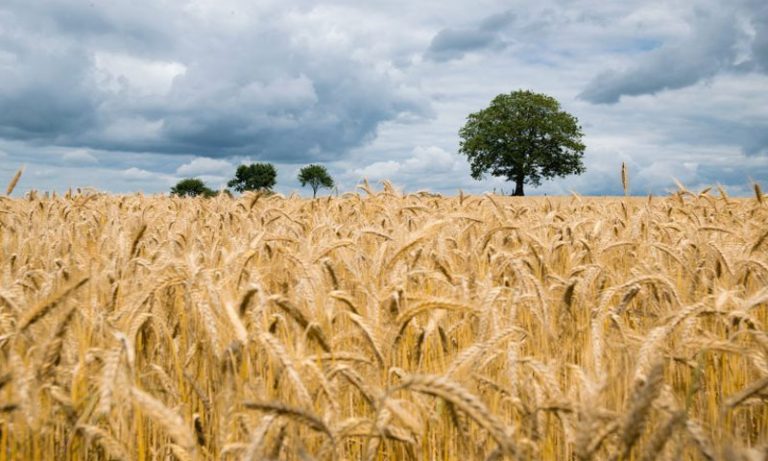Climate Change Threatens Wheat Harvest in Pakistan

Islamabad:In vast expanses across Pakistan where golden wheat fields sway gently in the breeze, environmental changes loom silently over these crops.
According to a special report by the IPCC, as global temperatures rise and weather patterns intensify, farmers, scientists, and policymakers face significant challenges. Wheat, vital to Pakistan’s agricultural economy and a staple for its population, is particularly at risk due to adverse effects of climate change.
The effects ripple through the entire agricultural ecosystem, posing critical threats to food security, economic stability, and environmental resilience.
Dr. Bashir Ahmed, Director of the Climate, Energy and Water Resources Institute (CEWRI) and the National Agricultural Research Center (NARC), warns that climate change affects our major crops by up to 5-15%. These impacts include the emergence of new diseases due to increased rainfall or temperature spikes, and direct effects on irrigation, which provides 70% of our water from glaciers and snow melt affected by global warming.
He emphasized that climate change is exacerbating health hazards like increased greenhouse gases and emissions, while deforestation exacerbates carbon dioxide absorption and oxygen depletion.
Dr. Bashir Ahmed further explained that with each degree rise in temperature, glaciers in the Himalayan and Karakoram regions melt up to 35%, and a 2-degree increase could lead to melting of up to 64% of glaciers, adversely affecting irrigation supplies and agricultural productivity.
Regarding the current wheat season, he highlighted significant negative impacts from recent rainfall, estimating a reduction in wheat yield by 8 to 12% according to various assessments.
**Which Province is Most Affected?**
Dr. Bashir Ahmed noted that Balochistan is most affected by rainfall, but Punjab suffers the greatest impact in terms of wheat production. Sindh sees early wheat harvesting due to timely rains, resulting in less impact on wheat production, while Khyber Pakhtunkhwa is heavily affected by rainfall, though its wheat-producing regions are less impacted.
He stressed that agriculture plays a crucial role in the national economy, impacting overall economic health. He cited last year’s successful rice crop, contributing significantly to Pakistan’s economy.
**Climate Change and New Technologies**
Dr. Bashir Ahmed highlighted the emergence of new challenges due to climate change, advocating for the adoption of new technologies not only for implementation but also for advancing research and innovation. He mentioned successful experiments with technologies like Response Drop Irrigation, which saves 80% of water and increases yields.
Additionally, he mentioned the use of China’s new technology in regions like Balochistan, Thar, and Cholistan, which enhances water conservation and production.
“We are encouraging farmers to utilize these technologies,” he said, “and have introduced two types of rice that consume less water.”
The situation underscores the urgency of addressing climate change impacts on agriculture, leveraging technological advancements to mitigate risks and sustain food security in Pakistan.






